In 1986 the NASA space shuttle Challenger exploded seventy-three seconds after take-off, with the loss of the entire crew.
Before the disaster, two engineers from the firm of rocket manufacturers had had serious reservations about the craft taking off, believing that the fuel seals would lose their integrity in the prevailing low temperatures.
One of the engineers, acting partly on instinct, tried in vain to have the flight stopped, but the management made a decision based on expediency that the flight should go ahead.
The rest is, as they say, history. A perverse and ironic triumph, you might think, of reason over instinct.
NASA Space Shuttle Challenger…

Bernd Heinrich Wilhelm von Kleist (18 October 1777 – 21 November 1811)
IMAGE LINKED: wikimedia Attribution 4.0 International (CC BY 4.0)
In his eighteenth century Essay on the Puppet Theatre, Heinrich von Kleist tells the story of a man who owned a performing bear. He had taught the bear to fence using a rapier, and claimed that this bear could outperform any human contestant. His friend found this hard to believe, and so they put the claim to the test, the friend engaging the bear in a fencing match. As predicted, the bear won.
What particularly struck his friend was that the bear’s eyes never left his own ‘as if he could read my soul in them’. For ourselves, we can work out strategies, plan modes of attack, invent counterfeits and feints using our reason, but the bear cannot do this.
He has, however, one weapon against which the cunning of all our powers of reasoning are useless: he uses his instincts, his feelings, what Kleist called his ‘Grazie’.
When he looks into your eyes, he sees your thoughts, your plans and, most importantly for the bear, your weaknesses. Kleist felt that, in the organic world, as reflection becomes darker and weaker, so inspiration and grace grow more radiant, more glorious – a triumph of instinct over reason.
Kleist wrote this piece in 1810. The period prior to this was the most important period in the rise of Freemasonry, the Age of Enlightenment, the Age of Reason.
This was a period in the modem world in which some began to believe in the supremacy of man’s own moral and intellectual qualities over the Divine Spirit – ‘reason reigns supreme’, you might say.
Freemasonry was for many the vehicle used to free themselves from the constraints of institutional religion.

Immanuel Kant 22 April 1724 – 12 February 1804) was a German philosopher
IMAGE LINKED: wikimedia Attribution 4.0 International (CC BY 4.0)
It is true that the philosopher Immanuel Kant, who lived from 1724 to 1804, urged people not to neglect their duty to the Church, but that was probably expediency on his part – a bit like Galileo, about 150 years before, crossing his fingers while recanting!
And while, in the wording of the masonic ritual, good and fulsome tribute was paid to the Supreme Being, it was the development of Man and his moral and intellectual growth which were emphasised.

unless assisted by that Light which is from above

It is not enough. Or perhaps, I should say, it depends on us studying and defining the ‘God-in-us’ principle, sometimes known as Grace. After all, we say that reason is useless ‘unless assisted by that Light which is from above’.
‘Homo Sapiens’, the knowing-man, but also the creature who can attain divine knowledge, knowledge above science, above reason. ‘Sapiens’ is good, but it is not good enough.
Scientists define humans and chimpanzees as ‘sapient, sentient beings’ – scientist-speak for ‘knowing-feeling’. Two sides to our nature, you might say. Perhaps we should re-name ourselves ‘Homo Sapiens Sentiens’.
In the space shuttle tragedy, all else having failed, the engineer told them that he had ‘a bad gut-feeling’ about the seals’ integrity.
If an engineer begins a sentence with ‘I know’, he is listened to with respect, but if he begins with ‘I think’ or ‘I feel’ he never gets to complete the first sentence.
‘You can’t get up and say “Hey, I’ve got a gut-feeling this thing’s going to blow up”‘ he said, ‘They’ll take you to the funny farm.’

feelings, instincts, can be our best defence against mistake or attack

So, there we have it. We can afford to ignore much in life, but not our feelings.
The problem is that in today’s world we have all too little chance to be in touch with them. But we must recognise that the effort is necessary.
Feelings, instincts, can be our best defence against mistake or attack. They can indeed mean the difference between life and death. And they do incidentally come precious close to self-knowledge.
Article by: Julian Rees

Julian Rees was initiated into Freemasonry in 1968 in Kirby Lodge No. 2818, London and was Master in 1976/77 and again at the centenary of the Lodge in 1999/2000. He joined many other UGLE Lodges.
He has been a regular contributor to Freemasonry Today since its founding in 1997 and from 2003 to 2007 he was Deputy and News Editor.
He was appointed active Junior Grand Deacon in the United Grand Lodge of England in 2007. In 2011 he left UGLE and joined the International Order of Freemasonry for Men and Women Le Droit Humain. He remains a well-published and respected Masonic author.
web site: www.julianrees.com

Freemasonry for the Heart and Mind:
Sketches from an Esoteric Notebook
by Julian Rees
Julian Rees has been writing about Freemasonry for many years, promoting the deeper, esoteric aspects of the Freemason’s craft. He has written articles for several publications worldwide and has lectured and given presentations in several countries.
His speculative writing on the symbolism, allegory and ritual aspects has become for many the touchstone of masonic education and information.
In this compendium, he writes about the different aspects of brotherhood, the power of allegory, the spirituality inherent in the Craft, the reality of Freemasonry stripped of extraneous matters, the importance of Truth in all areas of Freemasonry, about the way we can make sense of chaos and invest in harmony, order and peace, and the importance of the tools the Freemason uses in his work and on his path.
Here he gives us some insights, some old some new, arranged in themes to illustrate the rich tapestry of Freemasonry.

Making Light Handbook For Freemasons
by Julian Rees
At last an easy-to-read guide to the path of self-knowledge and self-improvement that is Freemasonry. This volume takes the reader through each of the three degrees of Craft Freemasonry, explaining how best to gain insight from the study and application of these teachings.
For the newly made Mason, this book provides an explanation of the ceremony and a glossary of Masonic terminology. It also provides a similar guide for future degrees of Masonic progression.
For the experienced Freemason it illustrates interesting and largely unknown aspects of the symbolism of the three degrees. To discover the true Masonic secret, we have to work to bring it forth; this book is the manual for that great work.
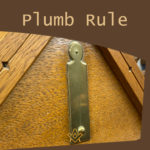 The infallible Plumb Rule, which, like Jacob’s Ladder, connects Heaven and Earth, is the criterion of rectitude and Truth. It teaches us to walk justly and uprightly … |
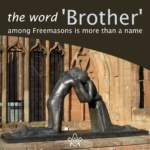 Brother among Freemasons is more than a name Are we to be forever crushed by evil and allow it to distort our lives ? Or maybe we can learn a lesson of understanding, tolerance and reconciliation. |
 Light symbolises knowledge, and darkness symbolises ignorance |
 Ritual. Why are we doing this repeatedly, over and over again. We all know the words. What is the point? |
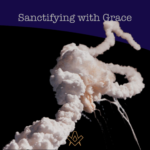 Feelings, instincts, can be our best defence against mistake or attack. |
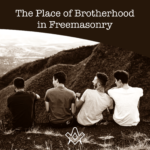 The Place of Brotherhood in Freemasonry To what extent are the fraternal relations between my fellow Freemasons and myself different to those which I hold with my neighbours and friends? |
 The mind is not a vessel to be filled, but a fire to be kindled. |
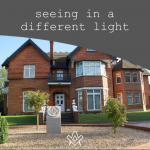 Further in-site into The International Order of Freemasonry for Men and Women Le Droit Humain which has been implanted in the United Kingdom since 1902 and is today the standard-bearer of the Order in this country. |
 Introduction to Co-Freemasonry A brief introduction to universal Co-Freemasonry - Le Droit Humain, Freemasonry for both Men and Women |
masonic knowledge
to be a better citizen of the world
share the square with two brothers

click image to open email app on mobile device









